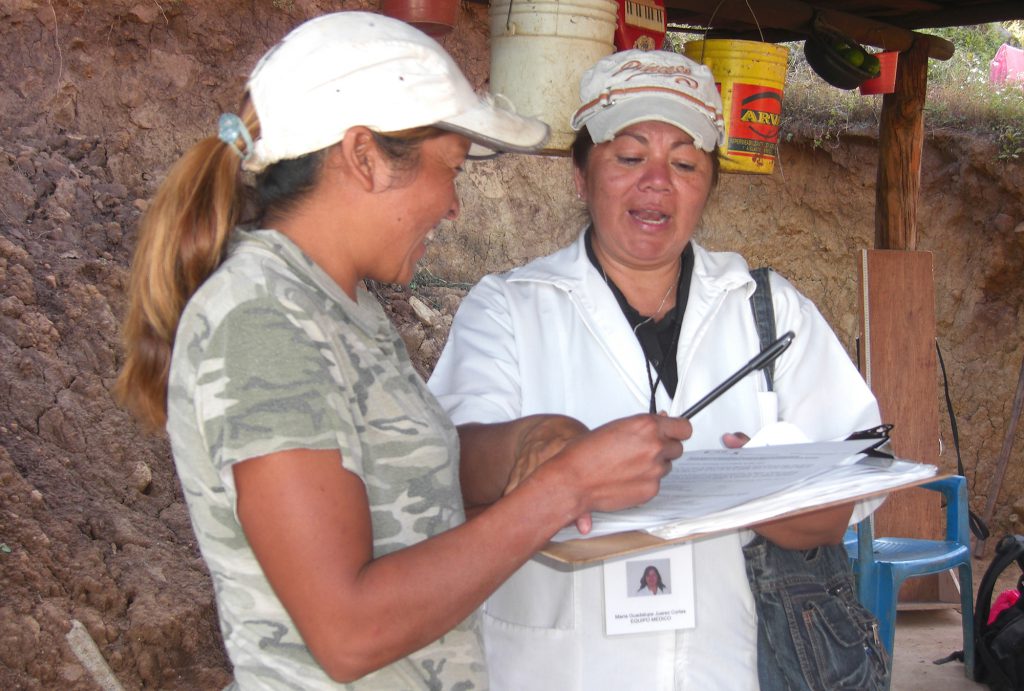Guest post by Jeff Mosenkis of Innovations for Poverty Action.

- You might have heard that just giving the poor cash, no strings attached, is all the rage in the effective aid community. Some people have suggested that if organizations want to give (more expensive) in-kind aid (food, cattle), they should first show that it’s more effective than cash. Dev Patel just recirculated a relevant paper (summary here) from Cunha, De Giorgi, and Jayachandran, who tested giving cash vs. in-kind food aid in very poor rural villages in Mexico. They found in this case the food helped the poor more for the outcomes they were looking at, general price of food in the village. While the cash increased prices a bit (not significant), trucking in food increased how much there was available in the village, lowering prices for everybody. This effect on prices was also stronger the more remote the village was.
- Their findings underscore a point that even the most ardent cash supporters point out but often gets lost in the conversation. A prerequisite to cash working is functioning markets – cash doesn’t do you much good if there’s nothing around to buy with it, or it’s expensive because there’s not much of it. One of the attractive points of cash is its easy delivery to remote areas, but it’s worth remembering that remoteness may also hinder its effectiveness. (More on food and nutrition outcomes from that study here.)
- At Slate Star Codex, Scott Alexander reports back on going to a conference for the Effective Altruism movement, full of people trying to figure out how to do the most good with their lives. He’d discovered that his profession, doctor, ranked relatively low on the altruism calculations, but also found that when you start thinking about how one person can alleviate the most suffering possible, it can get overwhelming quickly. Some groups literally get into the weeds – extending concern over the suffering of animals to include billions of insects in the wild.
- In the end, he comes away with a Tyler Cowen-style takeaway: it’s probably unrealistic to aim for a perfectly effective/altruistic world, but it’s not too much to hope for people to examine their lives and do a little better.
- Alexander also had a very nice back and forth post Google memo with Wharton psychologist & NYTimes contributor Adam Grant. They dive into what the meta-analyses actually say about gender differences in skills and career preferences and have a back-and forth in the comments. It’s a long but interesting read, and nice to see a constructive and respectful argument about the data on the internet.
- J-PAL has an impressive new bulletin combining effectiveness and cost of 58 different education interventions, and ranks how much education per dollar each provided.
- In an accompanying blog post Rachel Glennerster points out most systematic reviews don’t break down results by gender, but they found in most cases girls benefitted more than boys.
- But the best education program might be to just live in Canada. If Canadian provinces entered international education tests separately, three of them would be ranked in the top five countries on science test scores
- Lee Crawfurd says this book by a British science teacher who took a year off to observe schools in top performing countries is a better explanation of what good systems do well (more here). Those include delaying intensive academic work until kids are older and can benefit from it more.
- I can’t believe I only recently found out that Kim Yi Dionne has a podcast, Ufahamu Africa, about politics and events on the continent.
And not only are Canada’s schools better than ours, even their roads are behaviorally behaviourally designed:
Excellent driving #nudge – passing-lane section of the road puts cars into the slow lane by default pic.twitter.com/nAiujQASU6
— Lisa Kramer (@LisaKramer) August 17, 2017


2 Responses
Education is essential for every youngster therefore there must be educational behavior like seminars consciousness programs should be detained once in a month that in this way students will unwind their minds as well as learn amazing new.
Are Canada’s schools better than ours, or just its students?
Obviously the best-performing regions of countries do better than the countries themselves.